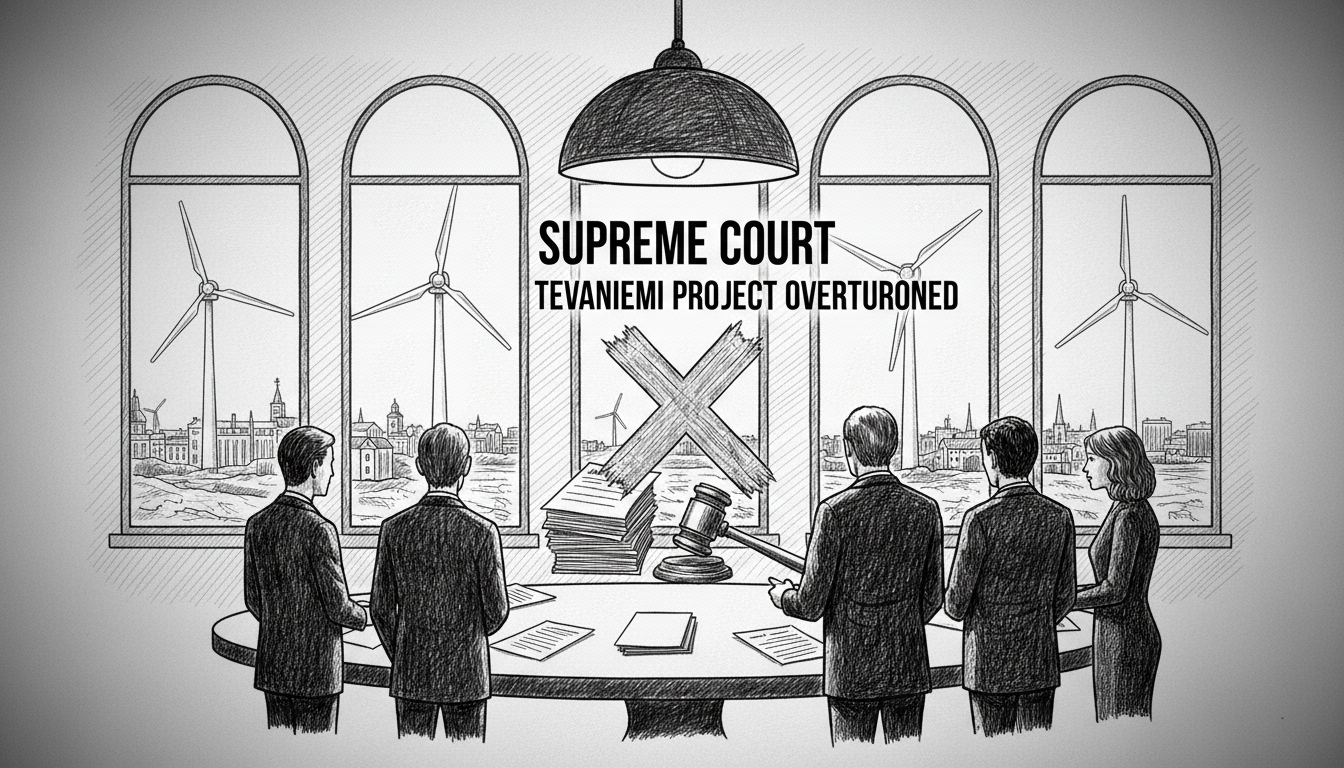Finland's Supreme Administrative Court has invalidated a major wind farm project approval in Ikaalinen after discovering city officials held improper closed-door meetings with industry consultants. The court ruled the city violated its own administrative rules by allowing external experts from wind energy companies to attend private sessions where the Tevaniemi wind power zoning plan was decided.
The decision sends the Tevaniemi wind farm project back to the starting point after nearly two years of planning. City council members originally approved the zoning plan in late 2023 following recommendations from both the city environmental board and city board.
Court documents reveal these municipal bodies held meetings that included consultants from companies with direct financial interests in the project outcome. One consultant represented the wind energy company that stood to benefit directly from the Tevaniemi development.
Finland's constitution guarantees lawful administrative decision-making. The Administrative Procedure Act requires authorities to maintain impartiality and independence from interested parties. The Supreme Court emphasized that even the mere presence of interested experts during decision-making could indirectly influence officials.
This case highlights Finland's strict approach to administrative transparency. Municipal decisions affecting community development and environmental resources must follow proper procedures without external pressure. The ruling demonstrates how courts will intervene when local governments bypass established protocols.
The regional administrative court in Hämeenlinna initially dismissed complaints about the meeting procedures. That court argued the decision should not be overturned solely because proper attendance approvals weren't formally documented, since everyone present had accepted the situation.
The Supreme Court took a different view. Wind power zoning decisions carry substantial social and economic importance, the court noted. This significance demands flawless procedural compliance. Even if consultants didn't participate directly in voting, their presence alone violated Ikaalinen's administrative code.
Project manager Hanna Vaahtera acknowledged the procedural error while defending the project's merits. She told local media the company considers the zoning plan otherwise sound and implementable. The wind energy firm OX2 plans to restart the application process following proper legal channels.
Ikaalinen's city board narrowly approved a new zoning proposal and draft agreement in early November following a tight vote. The decision shows local officials remain committed to the project despite the legal setback.
This case represents a growing trend in Nordic environmental law. Courts increasingly scrutinize procedural compliance in renewable energy projects as communities balance climate goals with proper governance. Similar challenges have emerged in Sweden and Norway where local residents question fast-tracked green energy approvals.
The ruling reinforces that Finland's renewable energy transition must follow established legal frameworks. Even well-intentioned projects cannot bypass procedural requirements designed to ensure fair and transparent decision-making.

